Editor's note: Squad leaders and battery leaders (generally called squad leaders) play an important role in military units, directly organizing and commanding training squads and batteries and carrying out missions. In the position of "first soldier, last officer", how do squad leaders work, and what difficulties need to be addressed? We have studied the reality at Division 312 (1st Corps) to answer this question.
Arriving at Regiment 165 (Division 312), after discussing with the unit commanders, we were suggested to do "4 together" with the officers and soldiers in a squad to "witness" the daily work of the squad leader team...
At 4:45 a.m., Sergeant Trinh Nguyen Viet Anh, Squad Leader of Squad 4, Platoon 8, Company 11, Battalion 6 (Regiment 165) woke up, took his toothbrush and towel and went to the water tank. When Viet Anh returned to the room, the regimental alarm and the company alarm sounded. Squad Leader Viet Anh shouted loudly: "Squad 4 wake up call", urging the soldiers to quickly go out to the yard, then together with the platoon officer and other squad leaders gathered the unit formation, and practiced morning exercises.
After the exercise, Viet Anh and the squad leaders and soldiers cleaned the assigned areas. While the soldiers cleaned themselves and folded their blankets, Viet Anh took the opportunity to return to his bed, took out a small notebook to review the tasks he had recorded, then urged the squad to assemble and go to the kitchen for breakfast. Next was the time to check internal order and hygiene. The squad leaders kept the soldiers standing in a straight line at the end of the bed, carefully looked at the rows of blankets, checked the arrangement of backpacks, shoes, clotheslines, towels... and reminded each person to adjust to ensure unity, orderliness, neatness, and beauty.
At exactly 6 o'clock, Squad Leader Viet Anh assigned the soldiers to get weapons, equipment (VKTB) and carry training materials. Footsteps were running, the whole platoon lined up in front of the porch. The squad leaders quickly checked the number of soldiers, VKTB, and reported to the platoon leader before marching to the training ground.
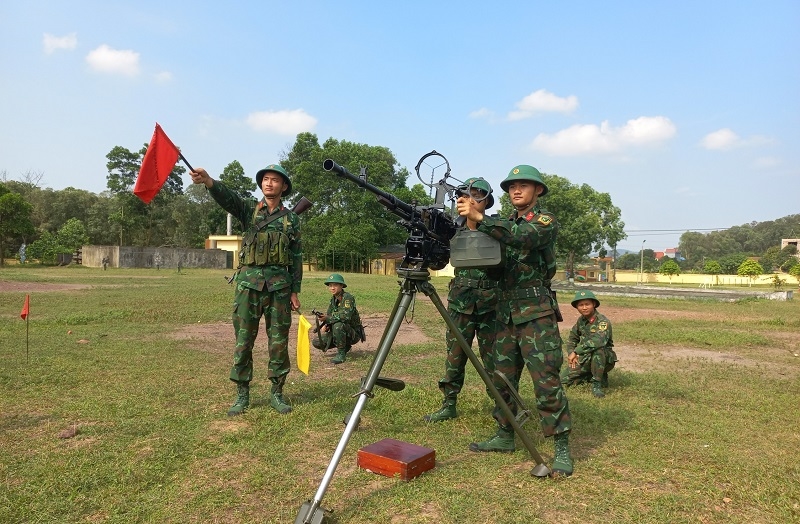 |
Sergeant Nguyen Hai Long, Battery Squad Leader of Battery 1, Platoon 5, Company 3, Battalion 16 (Division 312, Corps 1) leads the battery practicing shooting at low-flying targets. Photo: NGOC LAM |
In the more than one hour from the alarm clock to the time to go to training, we observed that the officers and soldiers of the unit never sat down to rest; among them, the busiest people were the squad leaders. Sergeant Trinh Nguyen Viet Anh said: “Most squad leaders have to proactively wake up before the soldiers to arrange personal matters so that they can urge, remind, maintain and check the squad to implement the regimes and tasks. Therefore, going to bed later and waking up before the alarm clock has become a habit of the squad leaders, even during nap time.”
On the way to the training ground, the squad leaders constantly reminded the soldiers to stick to their formation and walk in a straight line. If any soldier was carrying messy equipment or materials, the squad leader would help fix them...
In the summer, training on the training ground is really hard. Early in the morning, the scorching sun makes the soldiers' shirts soaking wet. The shirts of the squad leaders are even wetter. According to the assigned task, in the first hour of training, Squad Leader Viet Anh maintains the squad to review the techniques of wrapping and installing explosive devices, using explosives to attack the target.
After shouting the command to assemble the squad and giving the order for the squad to pack the explosives according to the test conditions, Sergeant Viet Anh started the timer and went to check, carefully observing each soldier performing the movements. When he found any soldier who did not do it correctly or slowly, he reminded and instructed them by talking and doing the sample movements. After the entire squad finished packing the explosives, Viet Anh gave the command for the mobile troops to attack the explosives. At the end of the first practice, Sergeant Viet Anh made comments, learned from experience, and directly demonstrated the movements to help the soldiers promptly correct their mistakes.
During the second and third training hours, Squad Leader Viet Anh continued to command the squad to rotate through grenade throwing and shooting exercises as assigned by the platoon leader. In any exercise, the squad leader had to maintain, check and correct each soldier's exercises, then record in a small notebook the things that needed attention and experience, and what each soldier was weak in, so that he could report to the platoon and company commanders to take measures to "improve the good and eliminate the bad". During breaks, the squad leader checked and reminded the soldiers to arrange their materials and equipment neatly, then helped the platoon leader organize fun activities, read newspapers, creating a joyful and exciting atmosphere for the soldiers...
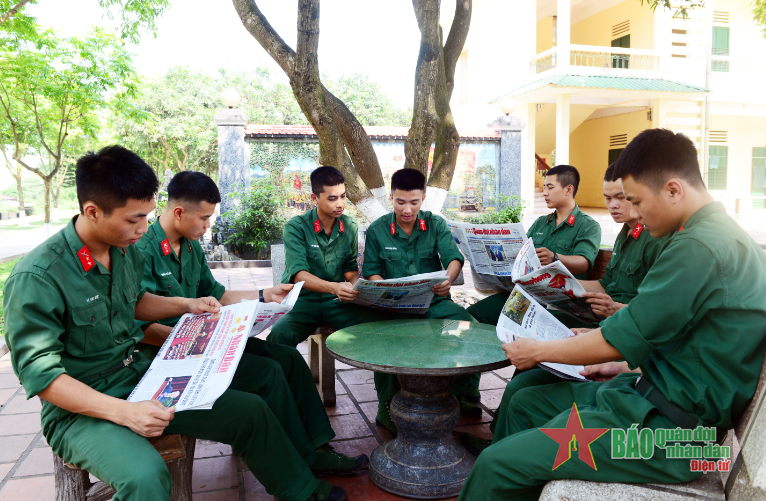 |
| Battery Captain Tran Van Dung (middle) and soldiers of Battery 1, SPG-9 Platoon, Battalion 1 (Regiment 141, Division 312) read the newspaper during break. |
The squad leaders' lunch break is also shorter than that of the soldiers because they have to check their equipment and materials, and wake up early to prepare for the afternoon work.
After the afternoon training session, the unit organized cleaning and maintenance of equipment, then increased production, took care of the flower garden, ornamental plants, and cleaned the barracks... The squad leader assigned tasks to each soldier, directly instructed, worked with, and checked the work to report to the platoon leader. When the soldiers were playing, exercising, and playing sports , Squad Leader Viet Anh took the opportunity to instruct the weak soldiers on grenade throwing movements to practice supplementary exercises so that they could throw farther and in the right direction.
After dinner, the squad leaders urged the soldiers to follow the regimen of 3-person squads, then went to the platoon leader's office to hold a meeting and receive tasks. At 6:30 p.m., the squad leader presided over the squad meeting, reviewed the day's work, disseminated the tasks and encouraged the soldiers to follow the regimen and discipline well, and strive to achieve the best training results. After that, the squad was assembled, reported the number of troops, read the newspaper, watched the news, and participated in the platoon meeting.
After the squad commander finished the military roll, Squad Leader Viet Anh and his soldiers took water to wipe the floor and the bed to cool it down, quickly hung their mosquito nets, then went to each bed to check on the soldiers to arrange their personal belongings neatly, reminded them to hang the mosquito nets carefully to avoid mosquitoes, reported the night watch time of each soldier and the password for the day; asked if any soldiers were tired and needed the squad leader to take over...
The unit turned off the lights and went to sleep. We saw Sergeant Viet Anh and two other squad leaders holding notebooks in the company common room to take notes and review the tasks that needed to be done. About 20 minutes later, Viet Anh went to the front of the battalion commander's house to check on the soldiers in his squad who were on guard, then returned to his room. "At night, the squad leader must pay attention to see if any soldiers are having trouble sleeping so that he can promptly ask them questions and find out the cause, avoiding soldiers from developing negative thoughts that the unit does not know about," Squad Leader Viet Anh shared.
Senior Lieutenant Do Ngoc Toan, Platoon Leader of Platoon 8, Company 11, Battalion 6 (Regiment 165) said: On a normal day, the squad leaders have a hard time because they always have to stick close to the soldiers to command, maintain, urge, and check the performance of tasks, both working directly with and guiding the soldiers. In general, the squad leader must always be exemplary and in a running state to be able to complete the task well. On days when the unit goes on a march, picnics, exercises or has an unexpected task, the squad leader has to work even harder. Especially when marching, digging trenches and fortifications, the squad leader must not only manage and command the squad but also carry and help the weak and tired soldiers. On days off and during breaks, the squad leader and the platoon and company officers organize for the soldiers to have fun, then exchange, chat, grasp the situation, and encourage the soldiers... The squad leader's working hours are all days of the week, including holidays and Tet, and not just from early morning to 9:30 pm. In reality, the squad leader's sleeping time is less than that of the soldiers. |
(continued)
Article and photos: DUY DONG - TRAN ANH - NGOC LAM
Source











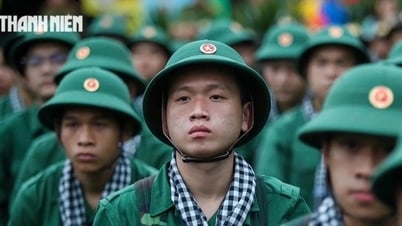
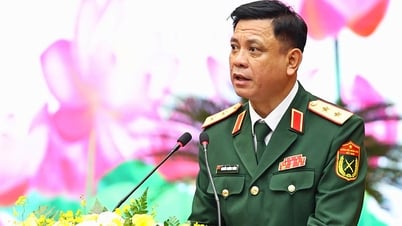

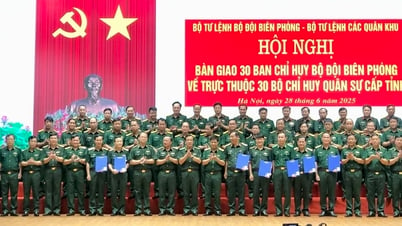






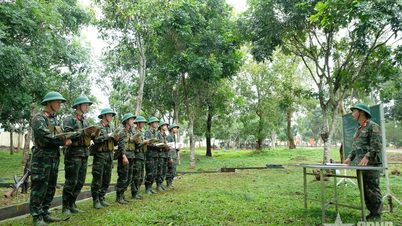

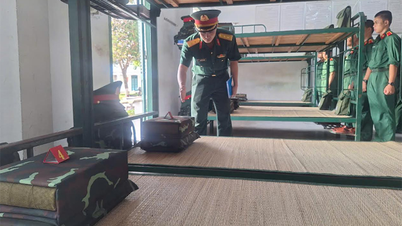
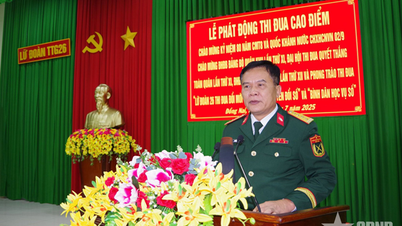











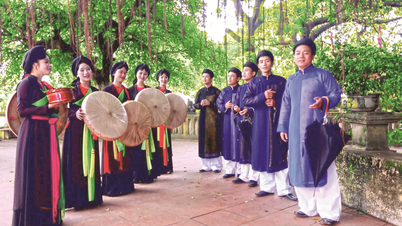

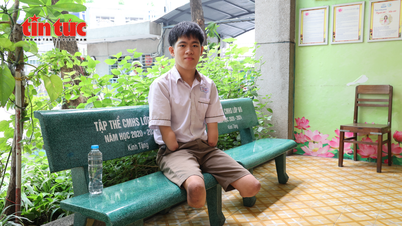







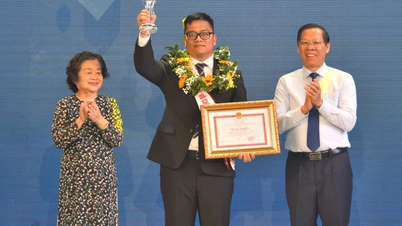
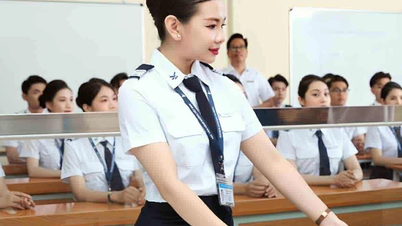




































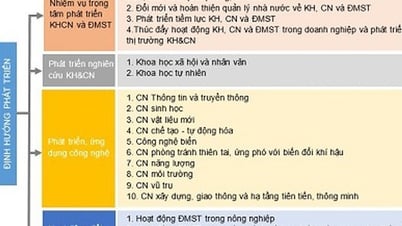









Comment (0)